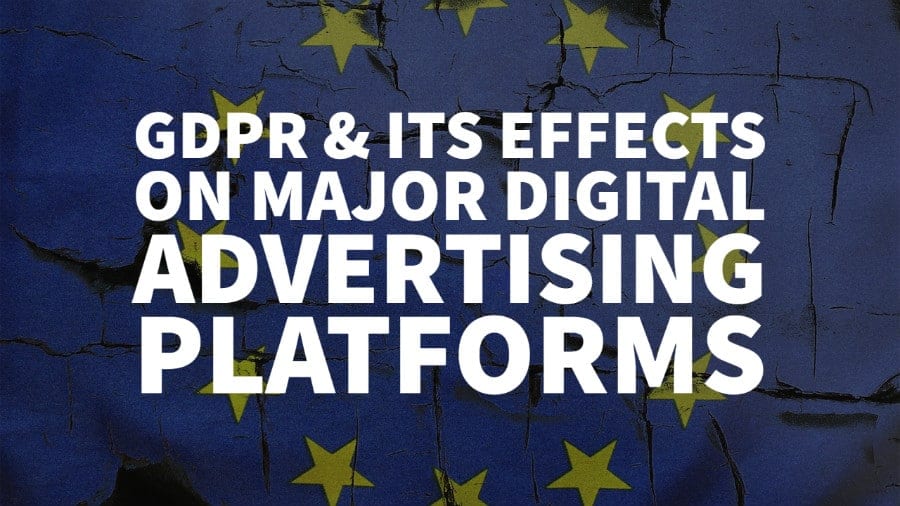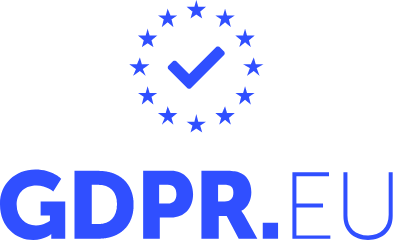
This post was most recently updated on September 28th, 2023
With the implementation of the General Data Protection Regulation (GDPR), major digital advertising platforms have undergone significant transformations to comply with data protection and privacy norms. This comprehensive guide aims to offer in-depth insights into the extensive impact of GDPR on such platforms, illuminating the shifts in advertising strategies, user data management, and overall operational protocols.
GDPR, which came into effect on May 25, 2018, is a regulation in EU law that protects the privacy and personal data of EU and EEA citizens. It mandates the transparent use of information and empowers individuals with control over their personal data.
Within our list of 100s of publishers that partner with MonetizeMore, we had the following statistics regarding GDPR. 23.3% of users were from the EU while 85.3% of these EU users already previously consented to the MonetizeMore Consent Management Platform (CMP) disclaimer.
Of the EU users that were new to each site or didn’t consent before, 44.8% consented and 55.3% did not consent to the CMP disclaimer.

Major platforms like Google and Facebook have introduced several modifications to align with GDPR requirements.
Google has been accused of privacy violations in multiple countries related to their location tracking settings. The digital advertising giant could face up to $4 billion in fines from the EU.
Consumer groups involved in the complaints claim that Google is using deceptive practices with regards to their location-tracking user options. Allegations state that Google does not inform users thoroughly on how their location data is used.
Google’s Adaptations include:
However, it’s not all doom and gloom for Google. One study believes that the company is amongst the biggest benefactors of GDPR in Europe. A study conducted by Cliqz and Ghostery using data from WhoTracks.me checked the use of trackers before and after GDPR implementation.
Be sure to read the full report for further details here.
GDPR certainly had a negative impact on Facebook, that and a few other misfortunate events over the past year for the social media giant. A GDPR watch group from Ireland wants Facebook to be held accountable. Ireland’s Data Protection Commission (DPC) says Facebook should pay a fine of $1.63 billion because of the hack. If the DPC can successfully prosecute Facebook, they will be the first company to pay a penalty of more than $1 billion because of GDPR.
Apart from hacks and impeding GDPR fines, Facebook also indicated that they lost approximately 1 million monthly users due to GDPR implementations. A million users might seem like a lot, however, compared to their 367 million monthly European and 2.2 billion total users, they are doing just fine.
Facebook’s Adaptations include:
X/Twitter has implemented substantial modifications to comply with GDPR guidelines, ensuring the protection and privacy of user data. These adaptations focus on transparency, user control, data protection, and lawful processing of information.
By integrating these GDPR adaptations, X/Twitter strives to foster a secure, transparent, and user-centric platform, prioritizing user privacy and data integrity.
Advertisers and publishers face the challenge of creating compelling advertising content while respecting user privacy. However, this constraint has led to innovations in advertising models and strategies, such as:
The stringent norms of GDPR present both challenges and opportunities for digital advertising platforms. The constraints on data utilization compel platforms to innovate and explore alternative advertising models and strategies, paving the way for a more sustainable and user-friendly advertising ecosystem.
The enactment of GDPR has prompted a paradigm shift in the digital advertising sector, emphasizing user privacy, data security, and transparency. While it poses certain challenges, such as restrictions on data access and the need for continuous compliance, it also offers myriad opportunities for innovation, growth, and the development of a more user-centric advertising ecosystem. By adhering to GDPR guidelines, major digital advertising platforms not only ensure legal compliance but also contribute to the evolution of a more ethical and user-friendly digital landscape.
Elevate Your Advertising Strategy with GDPR Compliant Solutions! 🔐
In programmatic AdTech, where data privacy and user consent are paramount, partnering with a GDPR compliant AdTech partner is no longer an option—it’s a necessity! Choose MonetizeMore, a leader in the AdTech space, renowned for its unwavering commitment to GDPR compliance, robust data protection, and innovative advertising solutions. 🌐
✨ Why Partner with MonetizeMore? ✨

With over ten years at the forefront of programmatic advertising, Aleesha Jacob is a renowned Ad-Tech expert, blending innovative strategies with cutting-edge technology. Her insights have reshaped programmatic advertising, leading to groundbreaking campaigns and 10X ROI increases for publishers and global brands. She believes in setting new standards in dynamic ad targeting and optimization.
10X your ad revenue with our award-winning solutions.